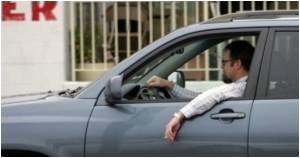Twenty five per cent of professional drivers report sleep disorder in a Swedish study, raising safety concerns.

In the team was Mahssa Karimi, a doctoral student from the Center for Sleep and Vigilance Disorders. Her research project looked at the incidence of sleep disorders in 116 bus and tram drivers in Gothenburg. The study found that 23% have problems with pronounced daytime sleepiness, 28% have trouble getting to sleep, 29% suffer from restless legs, and 19% have sleep apnoea (pauses in breathing while asleep which can result in tiredness and difficulty concentrating during the day).
"We looked more closely at the drivers with sleep apnoea because previous studies have shown that these patients run a clearly increased risk of accidents due to drowsiness," says Karimi.
The drivers with sleep apnoea were treated with a CPAP machine, where a breathing mask is used to maintain a positive pressure in the airways, keeping them open and so preventing snoring and apnoea while asleep.
"The study showed that these drivers stopped having apnoea episodes during the night and also had significantly lower blood pressure and, above all, greatly reduced daytime sleepiness," says Karimi.
The researchers had to actively look for sleep disorders in the group of professional drivers who had not already sought medical assistance for their problems. They found a large number of sleep disorders in these drivers which in many cases significantly affected their alertness and concentration. When the drivers received treatment for these disorders, there was a clear improvement.
Advertisement
Obstructive sleep apnoea syndrome is common, affecting an estimated 4% of men and 2% of women. Symptoms are sleepiness during the day, and snoring and pauses in breathing while asleep. Left untreated, there is the risk of complications such as high blood pressure. The causes of sleep apnoea are unclear: hereditary factors play a role, but other risk factors such as obesity can also contribute. Treatment with a CPAP machine or an OAT mouthpiece can reduce daytime sleepiness.
GPL












